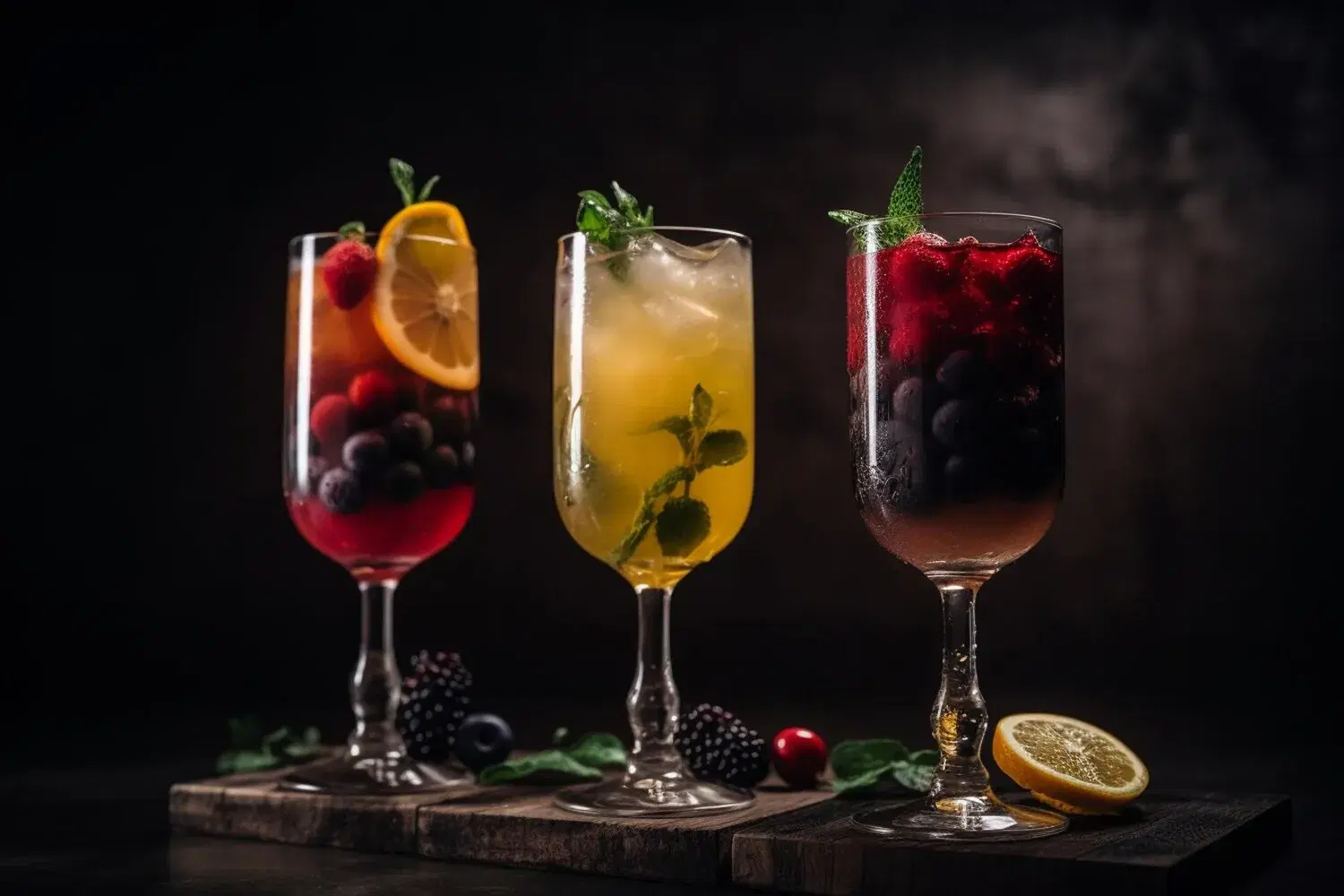
Cocktails
The bar also offers a range of cocktails.
Nutrition Facts
* The % Daily Value (DV) tells you how much a nutrient in a serving of food contributes to a daily diet. 2,000 calories a day is used for general nutrition advice.
Premium Feature
Premium Feature
Cocktails have a diverse and evolving history, with roots tracing back to early alcoholic mixes and punches. The modern cocktail era is often associated with the late 19th century and the emergence of professional bartenders. Prohibition in the US significantly impacted cocktail culture, leading to experimentation and the development of new drinks.
Premium Feature
Cocktails are a significant part of social and celebratory culture around the world. They are often enjoyed at bars, restaurants, parties, and special occasions, representing sophistication, relaxation, and conviviality.
Social Gatherings
Cocktails are frequently enjoyed in social settings, serving as a catalyst for conversation and connection among friends and colleagues. Happy hour, celebrations, and networking events often revolve around cocktail consumption.
Bartending as Art
Bartending has evolved into an art form, with skilled bartenders creating innovative and visually appealing cocktails. Mixology incorporates knowledge of spirits, techniques, and presentation to craft unique experiences.
Regional Variations
Cocktail culture varies significantly across different regions and countries. Different locales develop their own signature cocktails and preferred ingredients, reflecting local tastes and traditions.
Premium Feature
Cocktail flavors are incredibly diverse, ranging from sweet and sour to bitter and savory, depending on the ingredients used. Common flavor profiles include fruity, herbal, spicy, and citrusy.
The flavor of a cocktail depends entirely on its ingredients. Spirits like gin often provide a botanical or herbal base, while whiskey can offer notes of caramel, vanilla, and spice. Liqueurs contribute sweetness and specific flavors (e.g., cherry, coffee, orange). Juices add acidity and fruitiness, and bitters contribute complexity and depth. The overall balance of sweet, sour, and strong elements is crucial for a well-made cocktail.
Premium Feature
Use Fresh Ingredients
Freshly squeezed juices and high-quality ingredients make a noticeable difference in the final flavor of the cocktail. Avoid using pre-made mixes or artificial flavorings whenever possible.
Balance is Key
Achieving the right balance of sweet, sour, and strong elements is essential for a well-rounded cocktail. Adjust the proportions of ingredients to suit your personal preference.
Proper Ice
The type of ice used can affect the dilution and temperature of the cocktail. Use large ice cubes to minimize dilution when serving, and crushed ice for drinks like Mojitos and Mint Juleps.
Chill Your Glassware
Chilling the glass helps to keep the cocktail colder for longer, enhancing the overall drinking experience. Place glasses in the freezer for a few minutes before serving.
Premium Feature
Explore additional Drinks dishes and restaurants
Explore DrinksDiscover top dining spots and culinary experiences in Charleroi.
Explore CharleroiLearn more about the food culture, restaurant scene, and culinary heritage of Belgium.
Explore Belgium